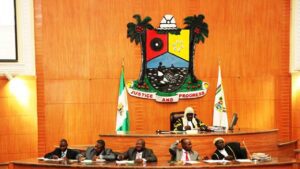
Firm advocates use of gas flare, oil pollution fines to compensate victims
A law firm Ntephe, Smith and Wills (NSW), on Monday called for channeling of gas flare and oil pollution fines to ameliorate adverse effects of oil and gas production on host communities.
It advocated a reform that would prioritise giving adequate compensations to the victims of oil and gas exploration-related pollution as a condition for collecting fines for oil pollution and gas flaring.
Mr Iniruo Wills, Lead Counsel for NSW, made the call at a knowledge sharing session hosted by the chamber and the Institute of the Environment Limited, in Port Harcourt.
Wills noted that over the years, oil and gas regulatory agencies were collecting fines for environmental infractions without giving a thought to the victims of the wrongdoing.
He observed that it was reasonable to ensure that proceeds from the fines were used for environmental conservation projects within impacted communities.
“We discovered that many times, government agencies charge fines, collect fines, for example, for gas flaring and even for other environment-related crimes and offences.
“But the victims of those offences or crimes or wrongdoings are left uncompensated,” Wills said.
Wills, an Environmental law specialist, said the trend portrayed the government in a bad light, making it seem as if the government did not care about the well-being of its citizens.
“So, government then appears to the society and affected communities and individuals as insensitive and there is an urgent need to change this perception and narrative and that reform is long overdue.
“It is as if the government is only interested in collecting fines.
“It appears environmental offences are revenue-generating activities and government is not interested in ameliorating the conditions of the victims in compensating the victims,” he said.
Wills, the former Commissioner of Environment in Bayelsa, said that while fines should go to the government as a penalty against the wrongdoers, the victims of the infraction must also be compensated.
He said that the thrust of the reforms being advocated by NSW was a framework that would put into account the concerns of citizens and across all sectors in the society.
“Due to the diversity in our society, we strongly recommend that in compensating victims, part of the fines so collected from the offenders should also go to the victims.
“Whether it is victims of rape, whether it is communities that are victims of environmental degradation, there should be a way of factoring their interest and this will highlight sensitivity of government to welfare if its citizens.
“As a reform proposal that there should be a generic legislative prescription that every fine-collecting agency of government must simultaneously, with the demand for fines or even prior to the demand for fines, make efforts to ascertain the victims of the offence and make sure that they are also compensated along with government collecting its fine.
“No longer should government collect fines and not be interested in how victims are compensated.
“And the easiest example for those of us in the Niger Delta region is the example of penalties for gas flaring.
“The government has been collecting over the years and yet it looks the other way when it comes to compensation for the communities,” Wills said.



